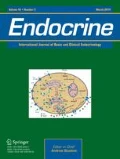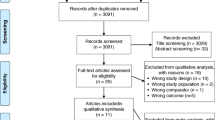Abstract
Background
This study critically reappraises the documentation on the clinical efficacy of selenium supplementation in chronic autoimmune thyroiditis (AIT) with the goal of improving the normalization of the treatment of this disease.
Methods
A literature search was performed in the Medline, Embase, and Cochrane Library databases. Twenty-three trials conducted in adults with AIT comparing the efficacy of selenium with or without levothyroxine (LT4) versus placebo and/or LT4 were eligible. The assessed outcomes were primarily pooled using a random- or fixed effects model based on the results of the heterogeneity test. The quality of evidence was assessed per outcome.
Results
In LT4-treated populations, patients receiving selenium demonstrated lower thyroid peroxidase antibody (TPOAb) levels at 3 months (mean difference [MD], −236.88; 95% confidence interval [CI], −353.35 to −120.41; p < 0.0001), 6 months (MD, −407.17; 95% CI, −623.60 to −190.73; p = 0.0002), and 12 months (MD, −327.03; 95% CI, −613.78 to −40.28; p = 0.0254), while thyroglobulin antibody (TgAb) levels only decreased at 12 months. In non-LT4-treated population, the selenium group demonstrated significantly lower TPOAb levels after 3 months (MD, −203.07; 95% CI, −395.44 to −10.70; p = 0.0385) and 6 months (MD, −322.27; 95% CI, −597.50 to −47.04; p = 0.0217) but not after 12 months, while TgAb levels only decreased at 3 months. There was no significant change in thyroid stimulating hormone (TSH) levels. Lower thyroid echogenicity was observed in all patients receiving selenium at 3, 6, and 12 months. However, these participants had a significantly higher risk of reported adverse effects.
Conclusions
Current evidence does not justify the emerging use of selenium supplementation in the treatment of AIT, despite it resulting in a decrease in autoantibody levels.




Similar content being viewed by others
Abbreviations
- AIT:
-
Autoimmune thyroiditis
- LT4:
-
Levothyroxine
- TgAb:
-
Thyroglobulin antibodies
- TPOAb:
-
Thyroid peroxidase antibodies
- TSH:
-
Thyrotropin
- CXCL:
-
Serum chemokine ligand
- TNF-α:
-
Tumor necrosis factor alpha
- INF-γ:
-
Interferon gamma
- IL:
-
Interleukin
- MCP:
-
Monocyte chemoattractant protein
References
R. Krysiak, K. Kowalcze, B. Okopień, Selenomethionine potentiates the impact of vitamin D on thyroid autoimmunity in euthyroid women with Hashimoto’s thyroiditis and low vitamin D status. Pharmacol. Rep. 71(2), 367–373 (2019). https://doi.org/10.1016/j.pharep.2018.12.006
W. Wang, J. Mao, J. Zhao, J. Lu, L. Yan, J. Du, Z. Lu, H. Wang, M. Xu, X. Bai, L. Zhu, C. Fan, H. Wang, H. Zhang, Z. Shan, W. Teng, Decreased thyroid peroxidase antibody titer in response to selenium supplementation in autoimmune thyroiditis and the influence of a selenoprotein P gene polymorphism: a prospective, multicenter study in China. Thyroid 28(12), 1674–1681 (2018). https://doi.org/10.1089/thy.2017.0230
J. Wichman, K.H. Winther, S.J. Bonnema, L. Hegedüs, Selenium supplementation significantly reduces thyroid autoantibody levels in patients with chronic autoimmune thyroiditis: a systematic review and meta-analysis. Thyroid 26(12), 1681–1692 (2016)
T.H. Brix, K.O. Kyvik, L. Hegedüs, A population-based study of chronic autoimmune hypothyroidism in Danish twins. J. Clin. Endocrinol. Metab. 85(2), 536–539 (2000)
T.G.A. Strieder, M.F. Prummel, J.G.P. Tijssen, E. Endert, W.M. Wiersinga, Risk factors for and prevalence of thyroid disorders in a cross-sectional study among healthy female relatives of patients with autoimmune thyroid disease. Clin. Endocrinol. 59(3), 396–401 (2003)
L. Schomburg, J. Köhrle, On the importance of selenium and iodine metabolism for thyroid hormone biosynthesis and human health. Mol. Nutr. Food Res. 52(11), 1235–1246 (2008). https://doi.org/10.1002/mnfr.200700465
K.H. Winther, M.P. Rayman, S.J. Bonnema, L. Hegedüs, Selenium in thyroid disorders - essential knowledge for clinicians. Nat. Rev. Endocrinol. 16(3), 165–176 (2020). https://doi.org/10.1038/s41574-019-0311-6
J.K. Wrobel, R. Power, M. Toborek, Biological activity of selenium: revisited. IUBMB Life 68(2) (2016). https://doi.org/10.1002/iub.1466
L.H. Duntas, S. Benvenga, Selenium: an element for life. Endocrine 48(3), 756–775 (2015). https://doi.org/10.1007/s12020-014-0477-6
E.A. Jensen, P.H. Petersen, O. Blaabjerg, P.S. Hansen, T.H. Brix, L. Hegedüs, Establishment of reference distributions and decision values for thyroid antibodies against thyroid peroxidase (TPOAb), thyroglobulin (TgAb) and the thyrotropin receptor (TRAb). Clin. Chem. Lab. Med. 44(8), 991–998 (2006)
K.H. Winther, J.E.M. Wichman, S.J. Bonnema, L. Hegedüs, Insufficient documentation for clinical efficacy of selenium supplementation in chronic autoimmune thyroiditis, based on a systematic review and meta-analysis. Endocrine 55(2), 376–385 (2017). https://doi.org/10.1007/s12020-016-1098-z
L. Yu, L. Zhou, E. Xu, Y. Bi, X. Hu, X. Pei, G. Jin, Levothyroxine monotherapy versus levothyroxine and selenium combination therapy in chronic lymphocytic thyroiditis. J. Endocrinol. Investig. 40(11), 1243–1250 (2017). https://doi.org/10.1007/s40618-017-0693-z
F. Karimi, G.R. Omrani, Effects of selenium and vitamin C on the serum level of antithyroid peroxidase antibody in patients with autoimmune thyroiditis. J. Endocrinol. Investig. 42(4), 481–487 (2019). https://doi.org/10.1007/s40618-018-0944-7
D. Esposito, M. Rotondi, G. Accardo, G. Vallone, G. Conzo, G. Docimo, F. Selvaggi, C. Cappelli, L. Chiovato, D. Giugliano, D. Pasquali, Influence of short-term selenium supplementation on the natural course of Hashimoto’s thyroiditis: clinical results of a blinded placebo-controlled randomized prospective trial. J. Endocrinol. Investig. 40(1), 83–89 (2017). https://doi.org/10.1007/s40618-016-0535-4
A. Kachouei, H. Rezvanian, M. Amini, A. Aminorroaya, E. Moradi, The effect of levothyroxine and selenium versus levothyroxine alone on reducing the level of anti-thyroid peroxidase antibody in autoimmune hypothyroid patients. Adv. Biomed. Res. 7, 1 (2018). https://doi.org/10.4103/2277-9175.223735
I. Pirola, E. Gandossi, B. Agosti, A. Delbarba, C. Cappelli, Selenium supplementation could restore euthyroidism in subclinical hypothyroid patients with autoimmune thyroiditis. Endokrynol. Pol. 67(6), 567–571 (2016). https://doi.org/10.5603/EP.2016.0064
H. Balshem, M. Helfand, H.J. Schünemann, A.D. Oxman, R. Kunz, J. Brozek, G.E. Vist, Y. Falck-Ytter, J. Meerpohl, S. Norris, G.H. Guyatt, GRADE guidelines: 3. rating the quality of evidence. J. Clin. Epidemiol. 64(4), 401–406 (2011). https://doi.org/10.1016/j.jclinepi.2010.07.015
J.P. Higgins, S. Green, Cochrane handbook for systematic reviews of interventions version 5.0.0. Naunyn-Schmiedebergs Archiv für experimentelle Pathologie und Pharmakologie 5(2), S38 (2008)
J.P.T. Higgins, S.G. Thompson, J.J. Deeks, D.G. Altman, Measuring inconsistency in meta-analyses. Bmj 327(7414), 557–560 (2003)
E.E. Mazokopakis, J.A. Papadakis, M.G. Papadomanolaki, A.G. Batistakis, T.G. Giannakopoulos, E.E. Protopapadakis, E.S. Ganotakis, Effects of 12 months treatment with L-selenomethionine on serum anti-TPO Levels in Patients with Hashimoto’s thyroiditis. Thyroid 17(7), 609–612 (2007)
D. Nacamulli, C. Mian, D. Petricca, F. Lazzarotto, S. Barollo, D. Pozza, S. Masiero, D. Faggian, M. Plebani, M.E. Girelli, F. Mantero, C. Betterle, Influence of physiological dietary selenium supplementation on the natural course of autoimmune thyroiditis. Clin. Endocrinol. 73(4), 535–539 (2010). https://doi.org/10.1111/j.1365-2265.2009.03758.x
J. Kvicala, H.P. Zamrazil, V: Affects selenium indeed concentrations of serum autoantibodies TPOAb and TGAb? Trace Elem. Electrol. 27, 167 (2010)
L.H. Duntas, E. Mantzou, D.A. Koutras, Effects of a six month treatment with selenomethionine in patients with autoimmune thyroiditis. Eur. J. Endocrinol. 148(4), 389–393 (2003)
C.R. de Farias, B.R. Cardoso, G.M.B. de Oliveira, I.C. de Mello Guazzelli, R.M. Catarino, M.C. Chammas, S.M.F. Cozzolino, M. Knobel, A randomized-controlled, double-blind study of the impact of selenium supplementation on thyroid autoimmunity and inflammation with focus on the GPx1 genotypes. J. Endocrinol. Investig. 38(10), 1065–1074 (2015). https://doi.org/10.1007/s40618-015-0285-8
T. Pilli, S. Cantara, L. Schomburg, V. Cenci, S. Cardinale, E.C.D. Heid, E.C. Kühn, G. Cevenini, F. Sestini, C. Fioravanti, G. D’Hauw, F. Pacini, IFNγ-inducible chemokines decrease upon selenomethionine supplementation in women with euthyroid autoimmune thyroiditis: comparison between two doses of selenomethionine (80 or 160 μg) versus placebo. Eur. Thyroid J. 4(4), 226–233 (2015). https://doi.org/10.1159/000439589
S.A. Eskes, E. Endert, E. Fliers, E. Birnie, B. Hollenbach, L. Schomburg, J. Köhrle, W.M. Wiersinga, Selenite supplementation in euthyroid subjects with thyroid peroxidase antibodies. Clin. Endocrinol. 80(3), 444–451 (2014). https://doi.org/10.1111/cen.12284
R. Krysiak, B. Okopien, Haemostatic effects of levothyroxine and selenomethionine in euthyroid patients with Hashimoto’s thyroiditis. Thromb. Haemost. 108(5), 973–980 (2012). https://doi.org/10.1160/TH12-04-0275
R. Krysiak, B. Okopien, The effect of levothyroxine and selenomethionine on lymphocyte and monocyte cytokine release in women with Hashimoto’s thyroiditis. J. Clin. Endocrinol. Metab. 96(7), 2206–2215 (2011). https://doi.org/10.1210/jc.2010-2986
C. Balázs, The effect of selenium therapy on autoimmune thyroiditis. Orv. Hetil. 149(26), 1227–1232 (2008)
A.K. Bhuyan, D. Sarma, U.K. Saikia, Selenium and the thyroid: a close-knit connection. Indian J. Endocrinol. Metab. 16(Suppl 2), S354–S355 (2012). https://doi.org/10.4103/2230-8210.104090
G. Karanikas, M. Schuetz, S. Kontur, H. Duan, S. Kommata, R. Schoen, A. Antoni, K. Kletter, R. Dudczak, M. Willheim, No immunological benefit of selenium in consecutive patients with autoimmune thyroiditis. Thyroid 18(1) (2008). https://doi.org/10.1089/thy.2007.0127
O. Turker, K. Kumanlioglu, I. Karapolat, I. Dogan, Selenium treatment in autoimmune thyroiditis: 9-month follow-up with variable doses. J. Endocrinol. 190(1), 151–156 (2006)
R. Gärtner, B.C.H. Gasnier, J.W. Dietrich, B. Krebs, M.W.A. Angstwurm, Selenium supplementation in patients with autoimmune thyroiditis decreases thyroid peroxidase antibodies concentrations. J. Clin. Endocrinol. Metab. 87(4), 1687–1691 (2002)
A.D. Anastasilakis, K.A. Toulis, P. Nisianakis, D.G. Goulis, L. Kampas, R.M. Valeri, D. Oikonomou, T.G. Tzellos, S. Delaroudis, Selenomethionine treatment in patients with autoimmune thyroiditis: a prospective, quasi-randomised trial. Int. J. Clin. Pract. 66(4), 378–383 (2012). https://doi.org/10.1111/j.1742-1241.2011.02879.x
R. Gärtner, B.C.H. Gasnier, Selenium in the treatment of autoimmune thyroiditis. BioFactors (Oxford, England) 19(3-4), 165–170 (2003)
G.H. Guyatt, A.D. Oxman, R. Kunz, D. Atkins, J. Brozek, G. Vist, P. Alderson, P. Glasziou, Y. Falck-Ytter, H.J. Schünemann, GRADE guidelines: 2. Framing the question and deciding on important outcomes. J. Clin. Epidemiol. 64(4), 395–400 (2011). https://doi.org/10.1016/j.jclinepi.2010.09.012
J.P. Higgins, S.G. Thompson, J.J. Deeks, D.G. Altman, Measuring inconsistency in meta-analyses. Bmj 327(7414), 557–560 (2003). https://doi.org/10.1136/bmj.327.7414.557
K.A. Toulis, A.D. Anastasilakis, T.G. Tzellos, D.G. Goulis, D. Kouvelas, Selenium supplementation in the treatment of Hashimoto’s thyroiditis: a systematic review and a meta-analysis. Thyroid 20(10), 1163–1173 (2010). https://doi.org/10.1089/thy.2009.0351
L. Hegedüs, J.M. Hansen, U. Feldt-Rasmussen, B.M. Hansen, M. Høier-Madsen, Influence of thyroxine treatment on thyroid size and anti-thyroid peroxidase antibodies in Hashimoto’s thyroiditis. Clin. Endocrinol. 35(3), 235–238 (1991)
M. Schmidt, M. Voell, I. Rahlff, M. Dietlein, C. Kobe, M. Faust, H. Schicha, Long-term follow-up of antithyroid peroxidase antibodies in patients with chronic autoimmune thyroiditis (Hashimoto’s thyroiditis) treated with levothyroxine. Thyroid 18(7), 755–760 (2008). https://doi.org/10.1089/thy.2008.0008
R.F. Burk, B.K. Norsworthy, K.E. Hill, A.K. Motley, D.W. Byrne, Effects of chemical form of selenium on plasma biomarkers in a high-dose human supplementation trial. Cancer Epidemiol. Biomarkers Prev. 15(4), 804–810 (2006)
R.D. Grange, J.P. Thompson, D.G. Lambert, Radioimmunoassay, enzyme and non-enzyme-based immunoassays. Br. J. Anaesth. 112(2), 213–216 (2014). https://doi.org/10.1093/bja/aet293
Acknowledgements
We thank American Journal Experts (AJE) very much for their help in editing the text.
Author contributions
Y.Q. and A.S. designed the study. Y.Q. and Z.X. performed the literature search. Q.X. and Q.Y. contributed to data acquisition. Y.Q. and Z.X. contributed to data interpretation and statistical analyses. Q.Y. and Q.X. contributed to supervision or mentorship. Y.Q. and Z.X. wrote the first draft of the paper. J.Z. and A.S. edited the report, and all authors contributed to the revision of the paper. All authors reviewed the paper, approved the final version, and agreed to submit it for publication.
Funding
This work was supported by the Sichuan Province Science and Technology Support Program (No. 2019YJ0038) and the 1.3.5 project for disciplines of excellence, West China Hospital, Sichuan University (ZY2017309).
Author information
Authors and Affiliations
Corresponding author
Ethics declarations
Conflict of interest
The authors declare no competing interests.
Additional information
Publisher’s note Springer Nature remains neutral with regard to jurisdictional claims in published maps and institutional affiliations.
Rights and permissions
About this article
Cite this article
Qiu, Y., Xing, Z., Xiang, Q. et al. Insufficient evidence to support the clinical efficacy of selenium supplementation for patients with chronic autoimmune thyroiditis. Endocrine 73, 384–397 (2021). https://doi.org/10.1007/s12020-021-02642-z
Received:
Accepted:
Published:
Issue Date:
DOI: https://doi.org/10.1007/s12020-021-02642-z




